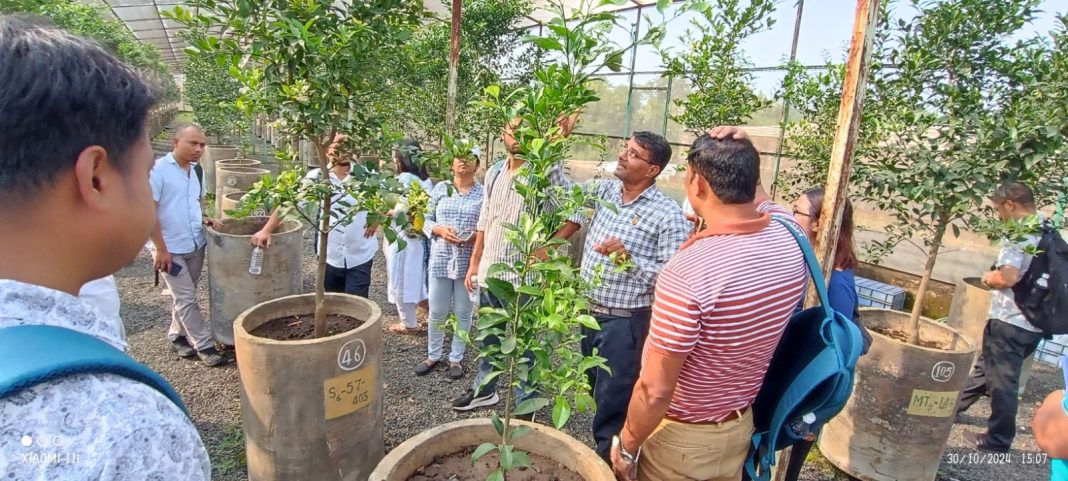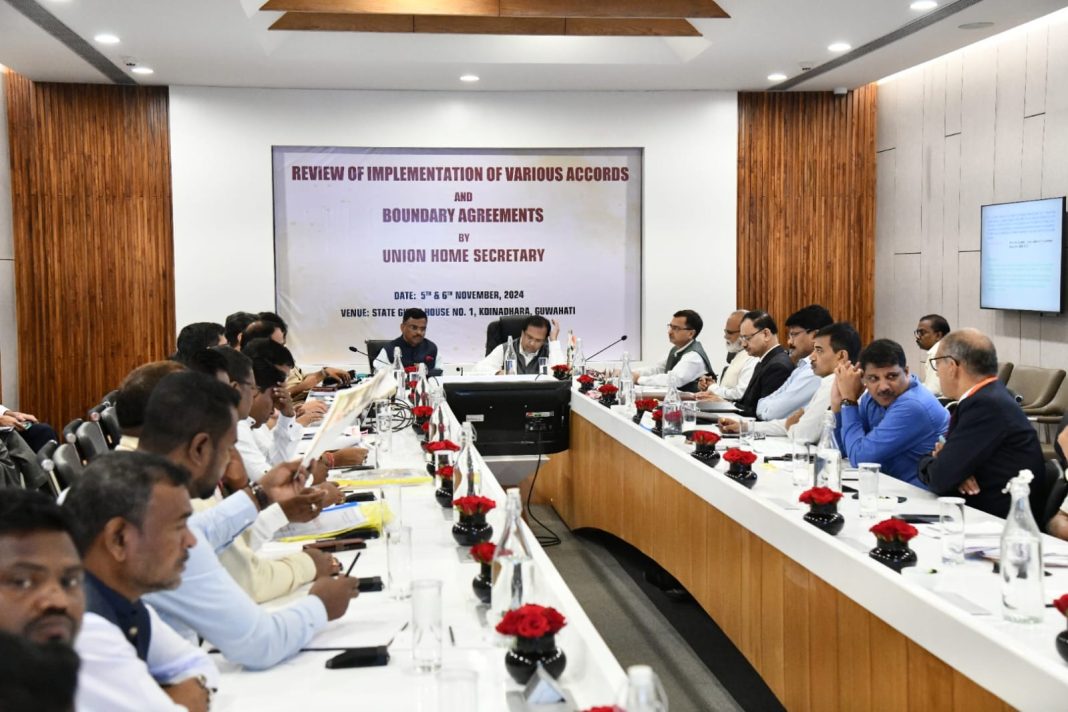By Roopak Goswami
Shillong, Nov 7: Thirteen horticulture officers from Meghalaya traveled over a thousand kilometers last month to Nagpur for a specialized training program on Khasi Mandarin at the ICAR-Central Citrus Research Institute (CCRI). Although Khasi Mandarin is native to Meghalaya, the state benefits significantly from the expertise and resources of the Central Citrus Research Institute (CCRI), India’s only dedicated citrus research institute.
CCRI’s jurisdiction spans the entire country, including a regional center in Biswanath Chariali, Assam, allowing it to support Meghalaya with advanced training and solutions essential for addressing challenges in local production.
ICAR-Central Citrus Research Institute (CCRI) organized a three-day trainers’ training programme on good agriculture practices for Khasi Mandarin from October 29-31.
The programme featured insect pest identification, preparation of Bordeaux mixture, a demonstration of pesticide spraying using a drone, and an off campus visit for the trainees to the orchard of a progressive citrus grower in Hatla, Nagpur district. An extension folder titled “Calendar of Operations for Khasi Mandarin Orchards” was released and distributed to the trainees.
Dr Dilip Ghosh, Director, ICAR-CCRI, urged the trainees to maximize the learning opportunities, addressing the needs and challenges of the North Eastern Himalayan citrus industry. He emphasized how, as horticulture officers, the trainees can contribute to improving the Khasi mandarin orchards in Meghalaya.
ICAR-CCRI in Nagpur is the only Institute in India specifically dedicated to citrus research and development, providing specialized training that combines scientific knowledge with hands-on experience. “For Meghalaya, which has unique varieties like the Khasi Mandarin, the training offered at CCRI equips farmers and stakeholders with the latest methods to improve productivity, pest and disease management, and post-harvest handling” an official said.
“Training at CCRI provides access to expert researchers, state-of-the-art laboratories, and field demonstrations that are tailored to meet the specific challenges and needs of citrus cultivation in Meghalaya. These skills and knowledge are crucial for boosting the citrus sector and aligning it with national and international quality standards” the official said.
Moreover, ICAR-CCRI also provide business incubation support to existing or aspiring entrepreneurs and startups to start or scale up their citrus-based agribusiness. Besides, ICAR-CCRI also provides consultancy services and contract research services to the agro-industries and State Governments in citrus-related ventures.
Khasi Mandarin cultivation in Meghalaya faces persistent issues, from inadequate access to disease-free planting material to pest infestations and poor post-harvest practices. Local farmers struggle with citrus decline caused by nutrient deficiencies and pests, as well as Meghalaya’s hilly terrain and seasonal water challenges.
“Most of the plantations in Meghalaya are of seedling origin” an official said.
The official said Meghalaya’s hilly terrain and varying rainfall patterns require specialized techniques for soil conservation and water management, which are often lacking. There are inadequate post-harvest facilities and practices result in significant post-harvest losses and limit marketability.
Training was given on improved planting and nursery techniques, integrated insect pests and disease management, integrated nutrient and soil Management and rejuvenation of declined citrus orchards.
“The farmers from different states who undergone training at CCRI and adopted the recommended technologies experienced improvement in plant health and crop productivity” the official said.




